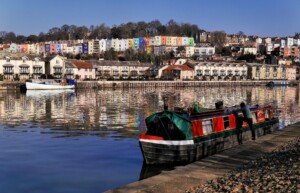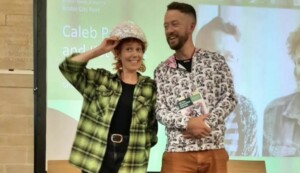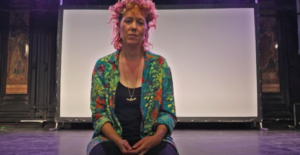When you visit a relative’s house Bristol City Poet Kat Lyons

Share this
Bristol City Poet Kat Lyons' poem to mark the 75th anniversary of the HMT Empire Windrush arriving in Britain.
When you visit a relative’s house
A written invitation is always in good taste
Mother Land leans from posters, turns to you
in movie theatres holding
a perfumed bouquet of jobs.
Come, she says.
Her promises gleam
brighter than the light on the sea.
The polite guest makes an effort with their appearance
You are polished, wear the sun
inside your skin the Caribbean
stitched into your seams, your sharp suit
cut from a different cloth. Journalists point out
the (excessive!) expense, the (extravagant!) tailoring,
your (surprising!) respectability.
The good hostess’s house literally shines out a welcome to her guests
Brittania does not wash the curtains for your visit,
does not wash her dirty linen,
does not wash her mouth out with soap, does not polish the brass
or dust the china ornaments on her mantelpiece.
You wiped your feet so carefully and still she tries
to scrub your shadow from the white stones of her doorstep.
Your hostess will appreciate a small and thoughtful gift
You bring clever hands still curled
from gripping salt-sprayed railings.
You bring calloused palms held open
for fortune to cross. You bring years
of experience in trades, in professions, in the Forces.
You bring your future to the table to share.
Your hostess will take your coat
your silk scarf fedora hat
your energetic youth
your qualifications
your high ideals. She sets them down
at a factory bench/on a building site/ by the sink
in a hotel kitchen.
The attentive hostess will make sure that all her visitors feel at home
After streets of shuttered faces, you find
welcome. There’s always room
in the broken-nosed terraces of St Paul’s
for one more optimist. Within damp walls warmed by fellowship,
you breathe out, move forward, steady yourself
on outstretched Pardner Hands.
Make certain your guests know what they should wear
No longer blown windward, you have learned
to dress for the weather. These days, you pull on a thick skin,
button your winter coat
over your shirt and tie, your pristine nurse’s dress.
A bus driver’s uniform waits at the back of the wardrobe
for you to pull it out, put it on.
You may dispense with formalities with relations or in close company
Later, you grow callaloo and children. Plant your feet
and dig. Beneath the concrete lies
the green and pleasant land
she promised. A common wealth
to run your fingers through. Whatever treasure this country holds
is burnished by your touch.
Notes on the text:
- The instructions in italics at the beginning of each stanza are paraphrased from the 1950s manual How to be a Good Hostess, printed for the British company Spillers Flour.
- Broken-nosed terraces: St Pauls and Easton sustained heavy damage from bombing during WW2. The poor accommodation offered in these areas was often all that was available to Bristol’s Windrush Generation, who faced severe housing discrimination elsewhere.
- Pardner Hand: An informal, community-based savings scheme originating in the Caribbean. Many of the Windrush Generation were denied access to basic banking services and set up Pardner Hand systems to mitigate the effects of this financial discrimination and support each other to thrive.
- A bus driver’s uniform: References the Bristol Bus Boycott of 1963, where months of sustained action by the West Indian community brought the issue of employment discrimination to national attention and forced the Bristol Omnibus Co. to lift the colour bar on their bus crews.
- Whatever treasure this country holds: Refers to the more abstract riches that can be found in/created from land and community, not the material treasures acquired by colonial looting.





